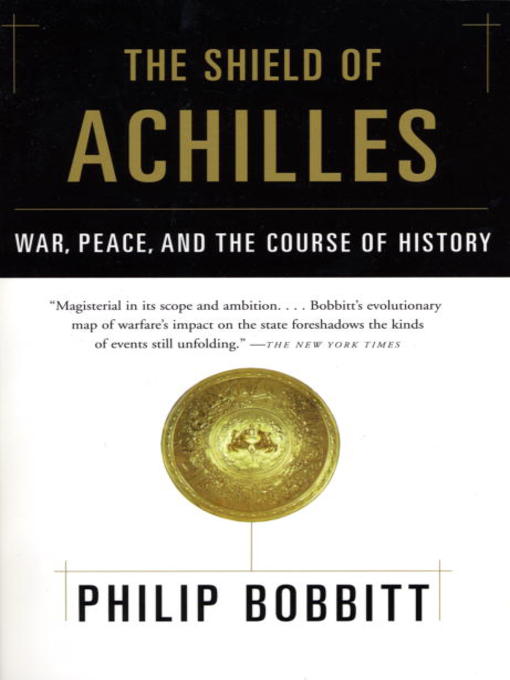
The Shield of Achilles
War, Peace, and the Course of History
کتاب های مرتبط
- اطلاعات
- نقد و بررسی
- دیدگاه کاربران
نقد و بررسی

March 25, 2002
The world is at a pivotal point, argues Bobbitt, as the nation-state, developed over six centuries as the optimal institution for waging war and organizing peace, gives way to the market-state. Nation-states derive legitimacy from promising to improve the material welfare of their citizens, specifically by providing security and order. Market-states offer to maximize the opportunity of their people. Nation-states use force and law to bring about desired results. Market-states use various forms of market relationships. Bobbitt, who has an endowed chair at the University of Texas and has written five previous books on constitutional law and on nuclear strategy, argues in sprawling fashion that this paradigm shift is essentially a consequence of the "Long War" of 1914–1990, a struggle among communism, fascism and parliamentarism that, through innovation and mimicry, generated a fundamentally new constitutional and strategic dynamic that in turn generated a fundamentally new "society of states." Central to Bobbitt's thesis is the postulate that international order is a consequence of domestic order. In the work's most stimulating section, Bobbitt discusses three possible ways of reorganizing the latter. The "Meadow," essentially an extrapolation of socio-political patterns currently dominant in the U.S., features high levels of individualism around the world at the expense of collective behavior at any level. The "Park," based on a European alternate, emphasizes regionalism. The "Garden" predicates successful market states disengaging from international affairs and emphasizing renewed internal community. None of these systems will eliminate war, but the nation-state is declining, Bobbitt argues, essentially because nonstate actors confront the nation-state with threats it cannot effectively respond to. This big book is provocative and richly textured, but too often Bobbitt's arguments are obscured by his historically digressive presentation. (May 20)Forecast:This book will be brandished by pundits of all stripes, particularly the IR (international relations) wonks who are its primary audience. Larger academic policy collections are also a lock. Trade sales should be slow but steady; the book can be recommended as a counterpoint to Negri and Hardt's sleeper hit
Empire.

























دیدگاه کاربران